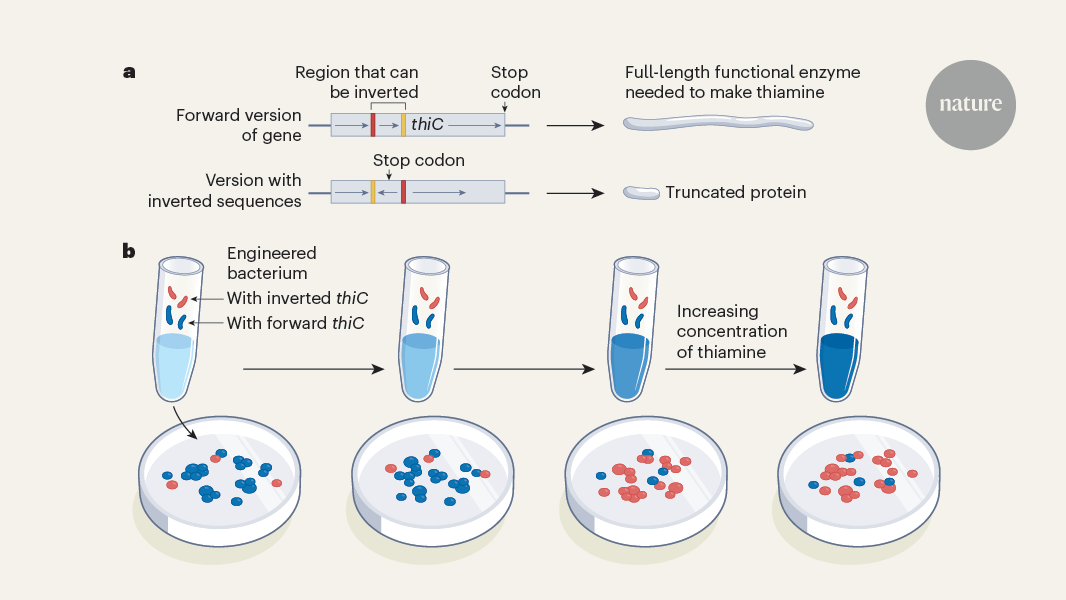Random mutation is a powerful approach used by many organisms, including bacteria, to generate genomic changes that can lead to improved success (fitness) when encountering altered conditions in their environment. However, drawbacks to relying on random mutation include the relatively slow rate of genetic change in rare organisms, as well as a lack of genetic specificity. An alternative strategy of rapidly producing changes at specific genomic sites is called phase variation and this can give rise to variation in the characteristics of cells (phenotypic heterogeneity). DNA-sequence inversion is one form of phase variation, in which DNA-binding proteins and enzymes called recombinases can reversibly flip the orientation of a region of the genome, called an inverton, that is flanked by protein-binding sites1.
Competing Interests
R.R.J. is an adviser for Seres Therapeutics, MaaT Pharma, Prolacta Bioscience and Postbiotics Plus, and has patents licensed to Seres Therapeutics.


